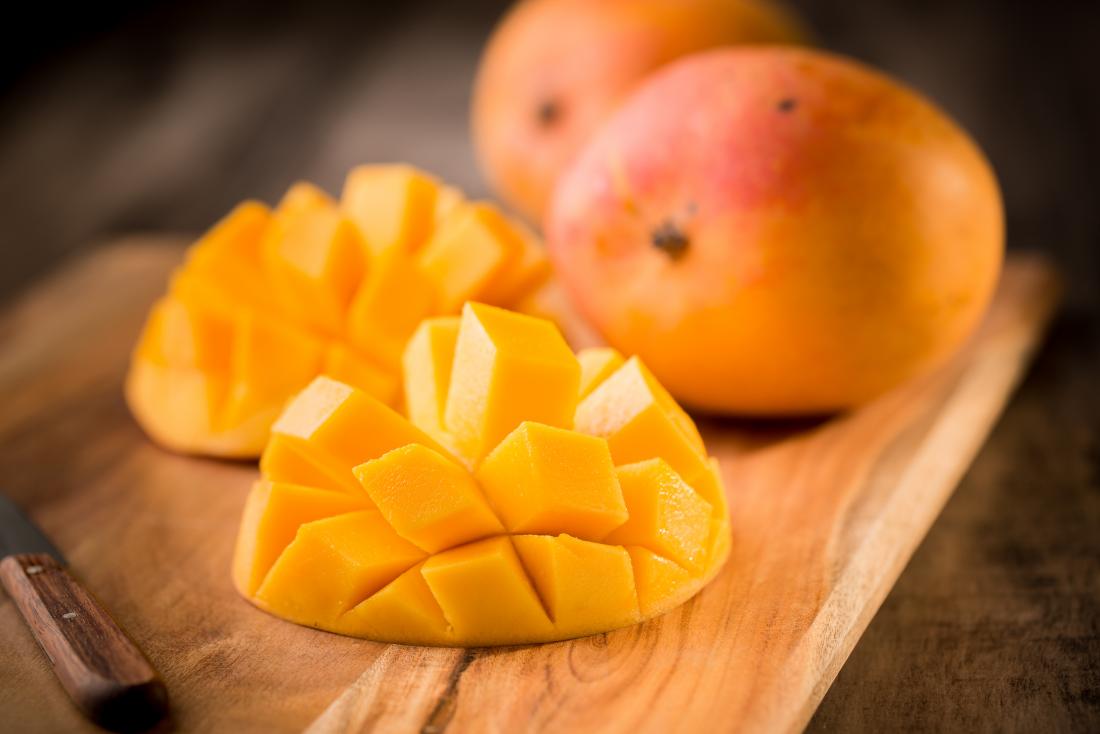In cannabis circles, there’s a long-standing belief that eating a mango before smoking or consuming marijuana can make your high stronger and last longer. But is there any truth to this claim, or is it just stoner folklore?
This guide dives into the science behind mangoes and THC, explaining where the idea comes from, what research says, and whether it might work for you.
Where the Mango Theory Comes From
The theory is based on the fact that mangoes are rich in myrcene, a naturally occurring terpene also found in cannabis. Terpenes are aromatic compounds that give plants their scent and may influence how cannabinoids affect the body.
The belief is that myrcene may help THC enter the bloodstream faster or more efficiently, potentially making the high feel stronger or last longer.
What Is Myrcene?
Myrcene is one of the most common terpenes in cannabis, responsible for earthy, musky aromas with hints of clove or fruit. It’s also found in:
- Mangoes
- Lemongrass
- Thyme
- Hops
Myrcene is thought to have relaxing, sedative effects and may enhance the permeability of cell membranes, allowing cannabinoids like THC to pass through more easily.
The Mango and Cannabis Connection
The Theory:
- Eat a ripe mango (high in myrcene) 30–60 minutes before consuming cannabis.
- Myrcene enters your bloodstream.
- When you consume THC, the myrcene may speed its delivery to the brain.
- The result could be a more intense, longer-lasting high.
The Evidence:
- There is limited scientific research directly proving this effect.
- Myrcene does have biological effects in lab studies, but the exact interaction with THC in humans is still unclear.
- Anecdotal reports suggest some people notice a difference, while others feel no change.
Factors That Affect Whether Mango Works for You
- Mango Ripeness: Ripe mangoes have higher terpene levels.
- Body Chemistry: Individual metabolism plays a big role in cannabis effects.
- Cannabis Strain: Strains already high in myrcene may make the mango effect less noticeable.
- Timing: Eating mango too close to or too far from cannabis use may alter results.
How to Try the Mango Method
If you’re curious and live in an area where cannabis is legal:
- Choose a Ripe Mango – The sweeter and softer, the better.
- Eat 1 Whole Mango – About 30–60 minutes before consuming cannabis.
- Consume Cannabis as Usual – Note any changes in onset, intensity, and duration.
- Record Results – Keep track for consistency if testing multiple times.
Health and Safety Considerations
- Mangoes are safe for most people, but avoid them if you have fruit allergies.
- Cannabis affects everyone differently—start with small amounts if testing this method.
- Avoid mixing with alcohol or other substances that can impair judgment.
Possible Benefits of Mango + Cannabis Combination
- Enhanced Relaxation – Myrcene’s calming effects may add to cannabis-induced relaxation.
- Potential Longer High – Anecdotally reported by many users.
- Pleasant Flavor Pairing – Sweet tropical mango taste complements cannabis edibles and smoking sessions.
What Science Still Needs to Prove
While the mango-high theory is intriguing, more research is needed to:
- Measure exact myrcene content in ripe mangoes.
- Test myrcene’s effect on THC absorption in humans.
- Determine ideal dosage and timing for noticeable effects.
Conclusion
So, does mango make you higher? The short answer: Maybe, for some people. The idea is rooted in the terpene myrcene’s potential ability to enhance THC absorption, but scientific proof is limited.
If you’re curious, try the mango method and see if it works for you—just remember that results vary, and the safest approach is mindful, moderate consumption.
FAQs
1. Does eating mango after smoking work too?
Possibly, but most reports suggest eating mango before cannabis use is more effective.
2. Can mango make you high without cannabis?
No—mango contains no psychoactive compounds like THC.
3. How many mangoes should I eat?
Most people try 1 medium to large mango for noticeable terpene intake.
4. Does dried mango work?
Fresh ripe mango likely has more active myrcene than dried or processed mango products.
5. Is this effect the same for edibles?
It may be, but since edibles take longer to metabolize, the timing could differ.
Also read: Just A Start Corporation: Mission, Programs, and Community Impact




Leave a Comment